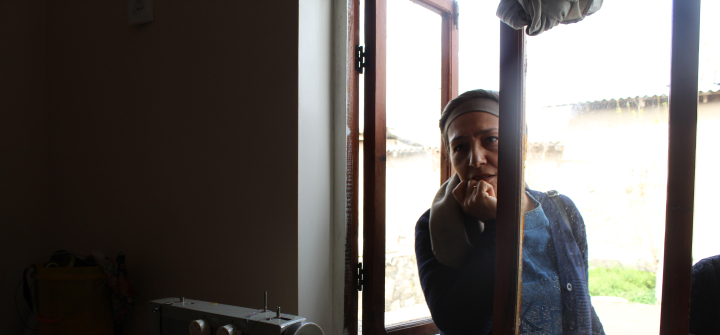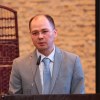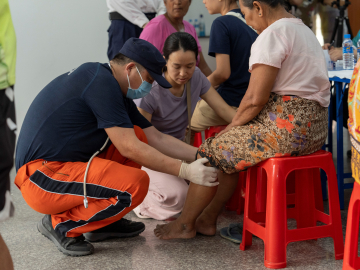Living with Dignity in Tajikistan: Mental Health and Violence Against Women and Girls
Before Tajikistan’s civil war, the newly independent country had made strides towards gender equality—but the 1992–1997 civil war widened the economic, political, and cultural gender gap, setting back women’s rights for a generation.
The conflict displaced one million people, killed 1% of the population, and widowed 25,000 women. Rape, sexual violence, and forced marriage were widespread.
Now, new research suggests that 60% of married women ages 15 to 49 have experienced spousal violence or emotional abuse, rising to more than 90% for women living with disabilities. Young women are often at risk not only from their husbands, but from other household members too.
The mental health impacts of this violence are devastating. Tajik women report deep-seated psychological distress, including low self-esteem, depression, and isolation.
Both women and men often attribute this violence to economic insecurity. A man’s inability to provide for the family is seen as an affront to masculinity—and working women pay the price, accused of transgressing gender norms or failing in their domestic duties.
The interlinkages between financial pressures and gendered violence pose a real challenge for an effective response. Mental health and psychosocial support in areas affected by violence should always consider the specific drivers of conflict. In Tajikistan, that has meant a dual focus on behavioral change and livelihood support.
Since 2018, International Alert’s Living with Dignity project has worked with 120 families to examine the harmful attitudes and behaviors that erode women’s physical and mental wellbeing. These norms tend to restrict women’s rights and mobility and downplay their contribution to the family’s security. Livelihood strengthening and financial management programs have improved family finances and eased a move towards better non-violent communication, listening and reflection.
During the first two meetings with the project’s psychologists, 54% of all the women and girls participating reported that they were seriously thinking about suicide. This correlates with a steady increase in suicide cases over the past five years. These acute mental health crises are exacerbated in rural areas, where hospitals and health centers are ill-equipped for these situations.
Against this backdrop, participants in the project in Khatlon province showed a self-reported 90% improvement in the mental and emotional state of women with disabilities and significant improvements in family relationships where violence was previously reported.
- Women participating in the project reported that talking openly about mental health and wellbeing in group sessions led by specialists helped lead to significant changes in their society—including less violence and controlling behavior.
- Some older male participants reported that female relatives who participated in the project showed greater self-confidence, economic independence, and awareness of their rights.
The link between economic agency, family cohesion and improved wellbeing is crucial for women, and particularly for women with disabilities. Participants viewed improvements in the family’s financial resources as a primary reason for improvements in their mental health.
One young woman participant viewed a new sewing machine, which allowed her to earn money from making clothes, as a significant turning point—helping her father-in-law see that she was making valuable contributions to the family.
The Living with Dignity methodology and Peace of Mind research provide a blueprint for promoting harmony in the family and protecting women and girls from violence. The programs have already been adapted for successful implementation with local partner organizations in Kyrgyzstan as well as Tajikistan. Local capacities for dialogue, non-violent communication, and holistic conflict-prevention approaches merit strengthening and further investment.
For the women of Tajikistan still suffering from gendered violence and psychological distress, a large-scale expansion of livelihood support and mental health services cannot come soon enough.
Farkhod Abdurakhmonov, MSc is head of International Alert’s country office in Tajikistan. He has over 20 years of experience in the United Nations, OSCE and leading international NGOs.
Join the 50,000+ subscribers in 170+ countries who rely on Global Health NOW summaries and exclusive articles for the latest public health news. Sign up for our free weekday newsletter, and please share the link with friends and colleagues.
Shahlo Subhonova, a Living with Dignity psychologist in Khatlon Oblast, Tajikistan. The credit info is: ©Aziz Sattori/International Alert





